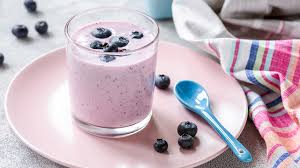Vitamin D, also known as the sunshine vitamin, is a fat-soluble vitamin essential for optimal health.
It helps your body absorb calcium and maintain adequate serum magnesium and phosphate concentrations — three nutrients important for your teeth, muscles, and bones.
It also plays crucial roles in brain development, heart function, your immune system, and mental health.
Low vitamin D levels are widespread worldwide. Symptoms of deficiency include fatigue, muscle pain, weak bones, and — in children — stunted growth.
To maintain adequate levels, children under 12 months should get 400 IU (10 mcg) of vitamin D daily, while children 1–13 years old should get 600 IU (15 mcg) daily. Adults and pregnant or nursing women should aim for 600 and 800 IU (15 and 20 mcg) per day, respectively.
Yet, very few foods contain this vitamin, and those that do are mostly animal products. Thus, it can be difficult to get enough of this nutrient from your diet, particularly if you’re vegetarian or vegan.
At the same time, a handful of foods and techniques can give you a boost.
Here are 6 good sources of vitamin D for vegetarians.
1. Sunshine
Your skin can produce vitamin D when exposed to the sun’s ultraviolet B (UVB) rays. Most people get at least some of their vitamin D this way.
According to the National Institute of Health (NIH), exposing your face, arms, legs, or back to sunlight for 5–30 minutes twice a week — without sunscreen — is usually sufficient to generate optimal vitamin D levels.
However, depending on your geographical location or climate, it may not be practical to achieve this degree of direct sun exposure.
Additional factors, such as the season, time of day, and degree of pollution or smog, as well as your age, skin color, and sunscreen use, also affect your skin’s ability to produce enough vitamin D.
For instance, smog or an overcast day may reduce the strength of UV rays by up to 60%. Moreover, older adults and those with darker skin tones may require significantly longer than 30 minutes of sun exposure to produce sufficient vitamin D.
That said, excess sun exposure can increase your risk of skin cancer. Hence, the American Academy of Dermatology urges people not to rely on the sun as their main source of vitamin D.
Summary
Your skin produces vitamin D following direct exposure to the sun. However, several factors can reduce your body’s vitamin D generation, and excess sun exposure isn’t recommended, as it may raise your risk of skin cancer.
2. Mushrooms
Mushrooms have the unique ability to make vitamin D when exposed to UV light. This makes them the only edible plant source of vitamin D.
For instance, wild mushrooms and those artificially exposed to UV light may boast anywhere between 154 and 1,136 IU (3.8 and 28 mcg) of vitamin D per 3.5-ounce (100-gram) serving.
What’s more, their vitamin D content remains high for the duration of their shelf life and appears to be as effective at raising levels of this vitamin in your body as vitamin D supplements.
That said, most commercial mushrooms are grown in the dark and aren’t exposed to UV light, which means that they likely contain very little vitamin D.
When shopping, look for a note on the label mentioning vitamin D content.
READ ALSO: Nutritionist Warns Public Against Consumption Of Non-Iodised Salt
Keep in mind that not all wild mushrooms are edible. Eating poisonous ones can cause symptoms ranging from mild indigestion to organ failure and even death. As such, you shouldn’t forage for your own wild mushrooms unless you’re expertly trained.
Summary
UV-exposed mushrooms contain varying levels of vitamin D and appear to be as effective at raising vitamin D levels as supplements. However, most conventionally grown mushrooms aren’t exposed to UV rays and harbor very little of this vitamin.
3. Egg Yolks
Egg yolks provide vitamin D, though their specific amounts rely greatly on the chicken’s diet and access to the outdoors.
For instance, eggs sourced from chickens fed vitamin-D-enriched feed can pack up to 6,000 IU (150 mcg) per yolk, whereas eggs from chickens given conventional feed contain only 18–39 IU (0.4–1 mcg).
Similarly, chickens allowed to roam outdoors are exposed to sunlight and typically lay eggs that boast 3–4 times more vitamin D than those of chickens raised indoors.
Free-range or organic eggs tend to have more vitamin D. The label may also indicate that the eggs are enriched with this nutrient.
Summary
Egg yolks can provide significant amounts of vitamin D, especially if the eggs are sourced from chicken given enriched feed or allowed to roam outdoors.
4. Cheese
Cheese is a natural source of vitamin D, albeit in very small amounts.
Most varieties contain 8–24 IU (0.2–0.6 mcg) of vitamin D per 2-ounce (50-gram) serving. Levels vary based on the way the cheese is manufactured.
Fontina, Monterey, and Cheddar cheeses boast more, while mozzarella has less. Soft types like cottage, ricotta, or cream cheeses offer almost no vitamin D.
Some kinds can also be fortified with vitamin D, and this will be indicated on the label or ingredient list.
Summary
Cheese is a natural source of vitamin D, albeit in very small amounts. Cheddar, Fontina, and Monterey boast a little more.
5. Fortified Foods
Although some foods naturally contain small amounts of vitamin D, a variety of products are fortified with this nutrient. Although fortification standards vary by country, a few of these foods include:
Cow’s milk. Depending on the country you live in, you can expect 1 cup (240 ml) of milk to contain up to 120 IU (3 mcg) of vitamin D.
Nondairy beverages. Plant milks like soy, rice, hemp, oat, or almond milk — plus orange juice — are often fortified with similar amounts of vitamin D as cow’s milk. They may provide up to 100 IU (2.5 mcg) of vitamin D per 1 cup (240 ml).
Yogurt. Some dairy and nondairy yogurts are fortified in vitamin D, giving around 52 IU (1.3 mcg) of this vitamin per 3.5 ounces (100 grams).
Tofu. Not all tofus are fortified, but those that are, offer around 100 IU (2.5 mcg) per 3.5 ounces (100 grams).
Hot and cold cereals. Oatmeal and ready-to-eat cereals are often fortified with vitamin D, with 1/2 cup (120 grams) providing up to 120 IU (3 mcg), depending on the variety.
Margarine. Unlike butter, which is not typically fortified with vitamin D, many brands of margarine add this nutrient. One tablespoon (14 grams) usually provides around 20 IU (0.5 mcg).
Due to inconsistent fortification standards between countries, checking a food’s ingredient list or nutrition label remain the best way to verify whether it’s fortified in vitamin D and how much it contains.
Summary
Numerous common foods and beverages, including dairy and nondairy milks, as well as some cereals, are fortified with vitamin D. Because standards vary between countries, it’s best to read the label carefully.
6. Supplements
If you’re concerned you may not be getting enough vitamin D from your diet, supplements can act as a reliable and consistent source. These come in two forms:
Vitamin D2: typically harvested from yeast or mushrooms exposed to UV rays
Vitamin D3: usually derived from fish oil or sheep’s wool, with vegan forms more recently developed from lichen
When taken in large doses of 50,000 IU (1,250 mcg) or more, vitamin D3 appears to be more effective at raising and maintaining high blood levels of vitamin D than D2.
Yet, when taken in smaller, daily doses, the advantage of D3 over D2 appears to be much smaller.
You can tell which type your supplement contains by reading the label. Most lichen-derived D3 supplements also add vegan certification.
Because vitamin D is fat-soluble, eating it with fatty foods may help increase its absorption.
Keep in mind that the Reference Daily Intake (RDI) is 400–800 IU (10–20 mcg), depend on factors like age and pregnancy. Exceeding this dosage for extended periods is not recommended, as it may cause toxicity.
Symptoms of vitamin D toxicity may include confusion, difficulty concentrating, depression, abdominal pain, vomiting, high blood pressure, hearing loss, psychosis, and —in extreme cases — kidney failure and coma.
Summary
Supplements are a reliable and consistent source of vitamin D. They’re best consumed in combination with fatty foods and shouldn’t be taken in amounts exceeding the RDI for extended periods.
The Bottom Line
Although vitamin D plays several crucial roles in your body, few foods naturally contain it — and vegetarian or vegan sources are especially sparse.
Spending time in the sunshine is a great way to boost your levels, but this isn’t possible for everyone.
As such, you can try foods like wild mushrooms, egg yolks, or items enriched with vitamin D. Supplements are another option.
If you’re concerned that you may have low levels of this vitamin, speak with your healthcare provider.
Source:Healthline












